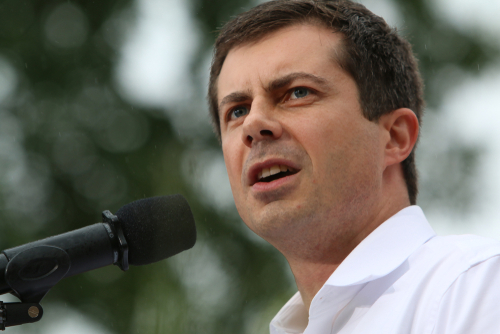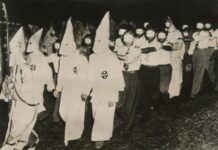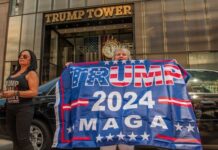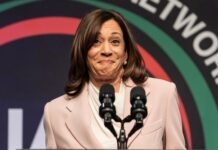
As the political landscape continues to evolve, the emergence of potential presidential candidates has garnered widespread attention and speculation. One name that has been circulating in conservative circles is that of Pete Buttigieg, the former mayor of South Bend, Indiana.
However, in a recent statement, Buttigieg expressed uncertainty about his potential candidacy, sparking further debate among conservatives. Let us delve into this topic from a conservative viewpoint, exploring the factors at play and the implications of Buttigieg's potential bid for the White House.
The average gas price has now increased by 46% under Joe Biden.
Here is Pete Buttigieg bragging that high gas prices are pushing Americans towards electric vehicles.
All of this goes back to why Biden refuses to unleash American energy. pic.twitter.com/2uUrt3tImR
— Daniel Turner (@DanielTurnerPTF) March 19, 2024
First and foremost, it is important to note that Buttigieg is a rising star in the Democratic Party, with a young, charismatic and progressive image. This, in itself, may be a cause for concern among conservatives who fear the growing influence of liberal ideologies. With that said, Buttigieg's hesitation in declaring his intentions to run for president may actually work in favor of conservatives. By refraining from making a firm commitment, Buttigieg is displaying a sense of indecisiveness and lack of conviction, which may not resonate well with voters, particularly conservative ones.
Furthermore, Buttigieg's recent comments about the possibility of running for office have raised eyebrows among conservatives. In an interview, he stated, "I don't know if I'll run." This statement, though seemingly innocuous, can be interpreted as a lack of confidence and determination on Buttigieg's part. It also raises questions about his readiness to take on the demanding role of President of the United States. In the eyes of conservatives, a strong and decisive leader is essential in leading the nation towards prosperity and security.
"How little do you have to do, or not do, to keep your job in government?" @CarlHigbie sounds off on the United States Secretary of Transportation, Pete Buttigieg. pic.twitter.com/mRjUKf6E8s
— NEWSMAX (@NEWSMAX) March 14, 2024
In addition to his indecisiveness, Buttigieg's political beliefs may not align with conservative values. As a former Rhodes Scholar and supporter of progressive policies such as universal healthcare and gun control, Buttigieg's ideology may clash with the traditional conservative principles of limited government and individual freedom. Moreover, his stance on hot-button issues such as abortion and immigration may further distance him from the conservative base.
Buttigieg's potential candidacy also poses a threat to current conservative leaders, namely President Donald Trump. As a highly popular and successful president among conservatives, Trump has a strong hold on his party. A potential challenge from Buttigieg, who has been praised for his eloquence and ability to appeal to a wide range of voters, could potentially divide the conservative vote. This scenario is a cause for concern among conservatives who want to ensure another term for Trump in the White House.
On the other hand, some conservatives argue that Buttigieg's uncertainty may actually be a ploy to appeal to a wider base. By remaining non-committal, Buttigieg is not alienating any potential voters and is instead positioning himself as a moderate candidate who can appeal to both sides of the political spectrum. This strategic move, if successful, could make Buttigieg a formidable opponent in the race for the presidency, raising the stakes for conservatives.
In conclusion, Pete Buttigieg's hesitation in declaring his intentions to run for president has sparked a fierce debate among conservatives. While some see it as a sign of weakness and lack of conviction, others view it as a clever strategy to appeal to a wider voter base. As the political climate continues to heat up, only time will tell if Buttigieg will ultimately throw his hat in the ring. Until then, conservatives will closely monitor this rising political figure and his potential impact on the 2024 presidential election.












